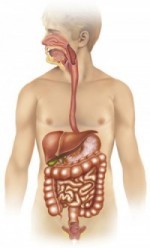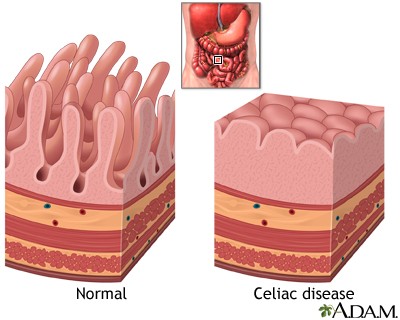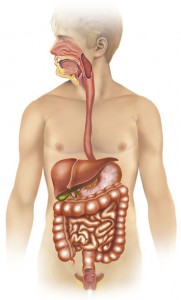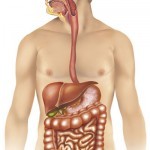
How Celiac Disease Affects The Digestive System
Celiac disease is a condition that affects the digestive systems of many individuals all over the world, and in this article, the goal is to explain it in a way that anyone can understand what’s really happening. We might even include some intense action (like in the movies).
The digestive system is a beautiful thing. We start breaking down that tasty food in our mouths by chewing it, and enzymes in our saliva even start to break down the carbohydrates that are present in our food. It then takes the journey down your pharynx to your esophagus and ends up in the stomach.
In the stomach, food continues to be broken down with the help of other enzymes and hydrochloric acid. When the broken-down food particles get into the small intestines, “magic” starts to happen. The products of the broken down food (i.e. amino acids, monosaccharides, nucleic acids, etc) get absorbed into our bloodstream and are taken to the parts of the body that need them. Our body then assembles the proteins, carbs, and all of the other substances needed for our survival. In order for us to produce those important molecules as needed, the digestive process has to happen efficiently.
When we eat food containing gluten (i.e. wheat, barley, oats, etc), it goes through this normal digestion process. However, one of the proteins that are formed by breaking down gluten is called gliadin. This is normally not a problem and is further broken down by the immune system and the amino acids (products of protein breakdown) are absorbed by the body to be used to make our own proteins.
In individuals with celiac disease, the presence of gliadin does something different (and not as fun). It initiates a hyperactive immune response where the body not only attacks the molecule that’s seen as a “foreign body”, it also attacks the small intestines. It’s like in those action movies where the hero comes into a neighborhood to get rid of the bad guys, but ends up also shooting up the entire neighborhood, blowing up the cars, and causing a bunch of damage. Imagine that happening inside your body (but not as violently).
That’s what’s happening with the small intestines in individuals with celiac disease, and the result is damage to the intestinal villi (those little finger-like projections lining the wall of the intestines). Since the small intestines are primarily involved in absorbing those nutrients we got from breaking down our food, this process will be compromised, and the individual won’t be getting as many nutrients from the food as they should be getting. This is called malabsorption.
This is why individuals with celiac disease tend to have gluten-free diets – because nobody likes heroes shooting up their towns, and nobody likes the immune system damaging their intestines.

Written by Leslie Samuel from Interactive Biology
©BiologyOnline.com. Content provided and moderated by Biology Online Editors.

